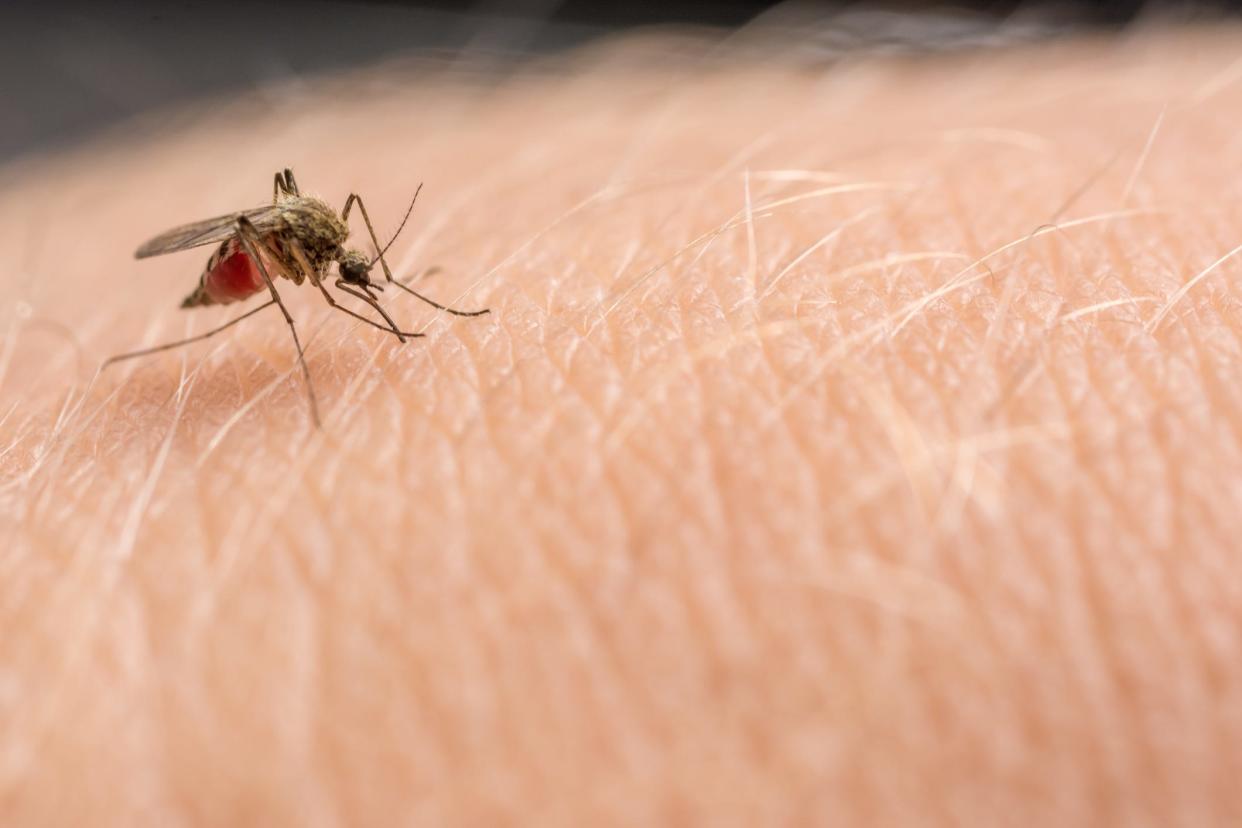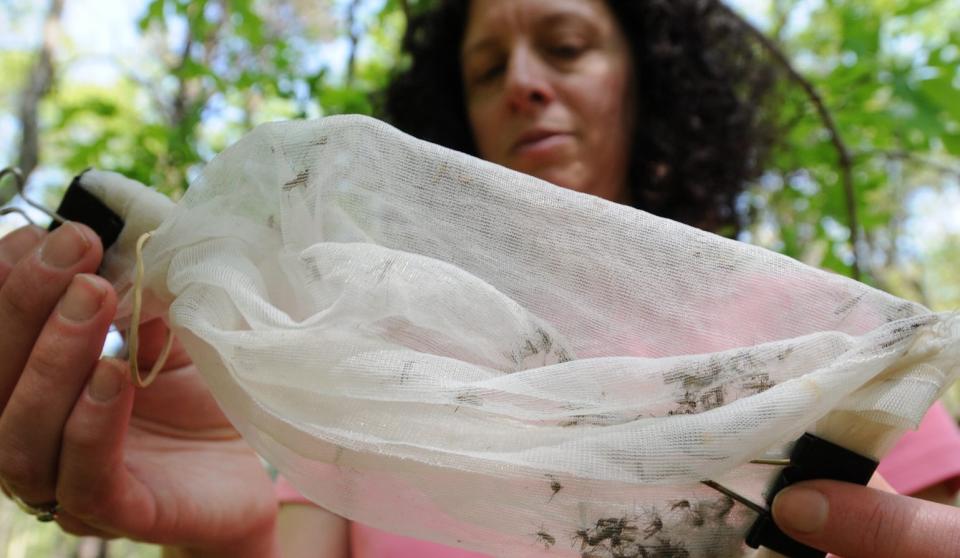1 dead in Alabama from rare, mosquito-borne virus; New York horses also infected

Health officials in Alabama and New York are warning the public about confirmed cases of a rare, deadly mosquito-borne virus that's been found in people, animals and insects.
The dangerous mosquito-borne Eastern equine encephalitis virus, also known as Triple E, was detected in two people in Alabama, including one person who died as result of contracting the disease, according to the state's Department of Public Health.
Health officials there said that both cases occurred in Baldwin County, one of only two counties bordering the Gulf of Mexico in that state.
On Tuesday, the New York Department of Health reported Triple E cases found in horses in St. Lawrence and Franklin counties, both in upstate New York. Cases were reported in mosquitoes in Onondaga County, also located upstate.
No human cases have been reported in New York, according to the release.
Health officials did not say how many horses were infected there or whether any of them died. But according to California's UC Davis Center for Equine Health, 90% of horses infected with the virus do not survive.
As for humans, Triple E can have a fatality rate of 30 percent, New York State Health Commissioner James McDonald said in the release.
"Although human cases are rare, the State Health Department takes eastern equine encephalitis virus seriously," he said.
There are no vaccines for the virus in humans, the Centers for Disease Control and Prevention reports, and no formal medicine is available for treatment.

What to know about COVID Pirola: How new lineage BA.2.86 differs from other variants
What is Triple E?
The virus, which occurs in eastern of Gulf Coast states, is one of the deadliest mosquito-borne diseases in the nation.
It can cause fever, meningitis (an infection of the membranes that surrounds the brain and spinal cord) or encephalitis (another brain infection), health officials with the U.S. Centers for Disease Control and Prevention said.
Those who survive are often left with physical or mental disabilities, according to the CDC, which tracks the disease across the nation.
Last year, the CDC reported that Triple E infected one person in the U.S. The year before, five people were infected and in 2020, 13 people contracted the virus.
The cases reported during the COVID-19 pandemic in 2020 dropped from 38 in 2019. Only six cases were reported in 2018.

What are signs of EEE?
Signs of Triple E, according to the CDC, include fever, chills, vomiting, diarrhea, seizures and coma.
Depending on a person's age and other health factors, symptoms typically start four to 10 days after being bit, health officials said. Death can take place anywhere from two to 10 days after symptoms appear.
To mitigate symptoms, the CDC recommends fluids, over-the-counter pain medicine and rest.
What is Powassan virus? What to know about the disease caused by a tick bite
How to prevent mosquito bites
To avoid bites, health officials recommend the following:
Use mosquito repellent, particularly at dawn and dusk when the insects are most active;
Wear long-sleeved shirts and pants;
Use repellent on clothing.
Stay indoors and use air conditioning if possible. If A/C is not available, keep windows screened.
Natalie Neysa Alund is a senior reporter for USA TODAY. Reach her at nalund@usatoday.com and follow her on X, the platform formerly known as Twitter @nataliealund.
This article originally appeared on USA TODAY: Eastern equine encephalitis, a mosquito-borne virus, found in 2 states

